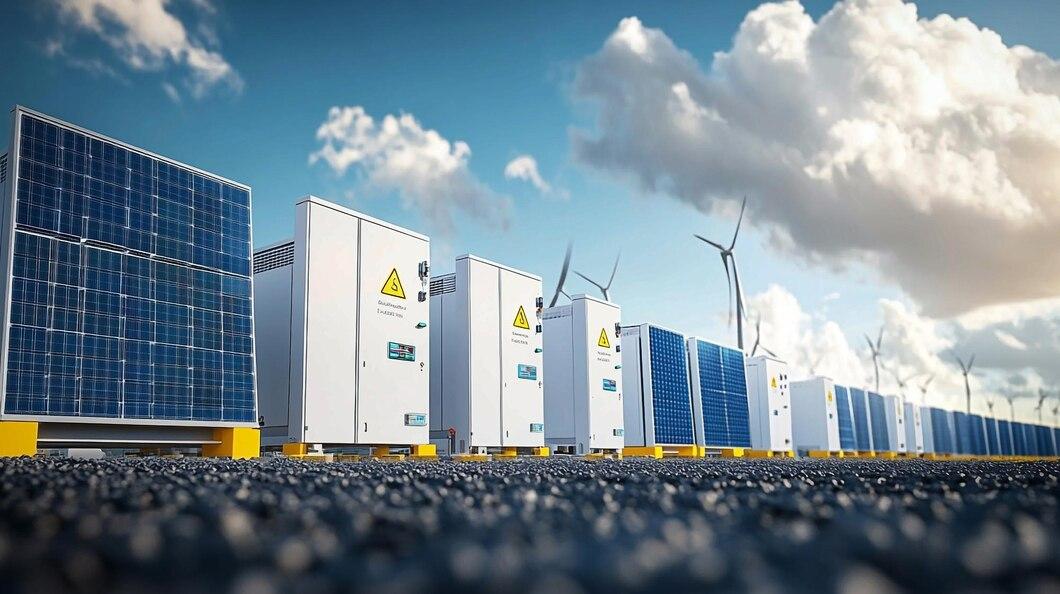Battery Energy Storage System (BESS) Market: Exploring Emerging Technologies

The battery energy storage system (BESS) market is undergoing a transformative phase, driven by the urgent need for efficient energy storage solutions in an increasingly renewable energy focused world. As we grapple with the challenges posed by climate change and energy reliability, innovations in battery technology are paving the way for more effective and sustainable energy management.
Understanding BESS and Its Significance
Battery Energy Storage Systems are designed to store energy generated from renewable sources such as solar and wind, allowing for a more balanced and reliable energy supply. By capturing excess energy during peak production and releasing it during high demand, BESS mitigates the intermittency associated with renewable energy generation. This capability is crucial not only for enhancing grid stability but also for supporting the integration of diverse energy sources into existing infrastructure.
Market Outlook
The outlook for the BESS market is promising, driven by a combination of technological advancements, regulatory support, and evolving consumer needs. As the world increasingly prioritizes sustainable energy solutions, the demand for efficient energy storage systems is set to rise. This growth is supported by several factors:
-
Advancements in Battery Technology: Continuous improvements in battery chemistries are enhancing performance and reducing costs. Innovations such as lithium-ion batteries, solid-state batteries, and flow batteries are transforming the landscape of energy storage, making it more accessible for various applications.
-
Regulatory and Policy Support: Governments around the world are recognizing the critical role of energy storage in achieving climate goals. Supportive policies and financial incentives are being implemented to promote the adoption of BESS, fostering a favorable environment for investment and innovation.
-
Increasing Integration of Renewables: As the share of renewable energy in the global energy mix continues to grow, the need for reliable energy storage solutions becomes paramount. BESS is essential for managing the variability of renewable generation, ensuring a consistent power supply.
-
Growing Demand for Electrification: The electrification of transportation and other sectors is creating additional opportunities for BESS. Electric vehicles (EVs) can serve as both energy consumers and storage units, further integrating transportation and energy systems.
Exploring Emerging Technologies
Several emerging technologies are poised to reshape the BESS market and enhance its capabilities:
-
Solid-State Batteries: Solid-state batteries represent a significant advancement in energy storage technology. By replacing the liquid electrolyte found in traditional lithium-ion batteries with a solid electrolyte, these batteries offer higher energy densities, improved safety, and longer lifespans. Solid-state technology has the potential to revolutionize not only BESS but also electric vehicles and portable electronics, making it a critical area of research and development.
-
Flow Batteries: Flow batteries are another promising technology for large-scale energy storage. Unlike conventional batteries, flow batteries store energy in liquid electrolytes contained in external tanks. This design allows for easy scaling and longer discharge times, making them ideal for applications that require sustained energy supply over extended periods. Flow batteries are particularly well-suited for renewable integration, providing a stable energy source during fluctuations in generation.
-
Advanced Lithium-Ion Technologies: While lithium-ion batteries have already established themselves as the dominant technology in the BESS market, ongoing innovations are enhancing their performance. New materials and chemistries are being developed to increase energy density, improve charge/discharge rates, and extend battery life. These advancements are crucial for meeting the growing demand for energy storage in various applications.
-
Artificial Intelligence and Smart Energy Management: The integration of artificial intelligence (AI) and advanced analytics into BESS is revolutionizing energy management. Smart energy management systems can optimize the operation of energy storage systems by analyzing real time data and predicting energy demand. This capability enables more efficient use of stored energy, enhances grid reliability, and reduces operational costs.
-
Recycling and Second-Life Applications: As the demand for batteries grows, so does the need for sustainable practices in battery production and disposal. Innovations in recycling technologies are making it possible to recover valuable materials from spent batteries, reducing environmental impact and promoting a circular economy. Additionally, second-life applications for used batteries such as repurposing them for stationary energy storage are gaining traction, further extending the lifecycle of battery assets.
-
Hybrid Energy Storage Systems: Combining different energy storage technologies can optimize performance and address specific energy needs. Hybrid systems that integrate batteries with other storage solutions, such as supercapacitors or pumped hydro storage, offer enhanced capabilities for managing power quality, frequency regulation, and energy balancing. This versatility makes hybrid systems increasingly attractive for various applications.
- Art
- Causes
- Crafts
- Dance
- Drinks
- Film
- Fitness
- Food
- Games
- Gardening
- Health
- Home
- Literature
- Music
- Networking
- Other
- Party
- Religion
- Shopping
- Sports
- Theater
- Wellness


